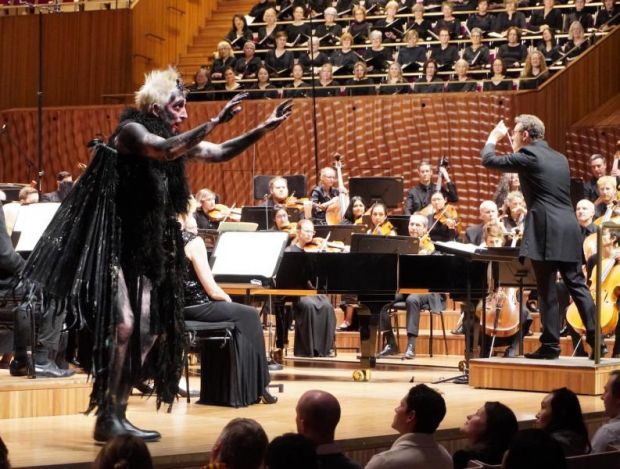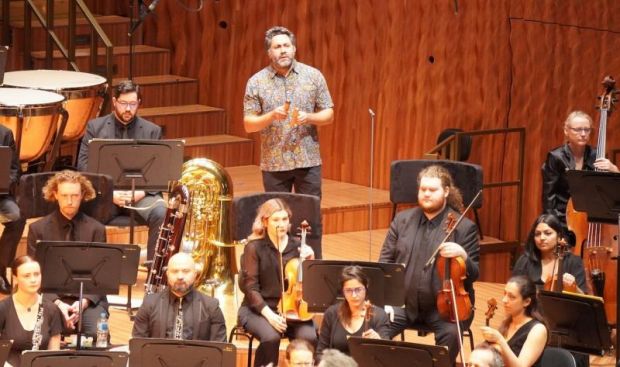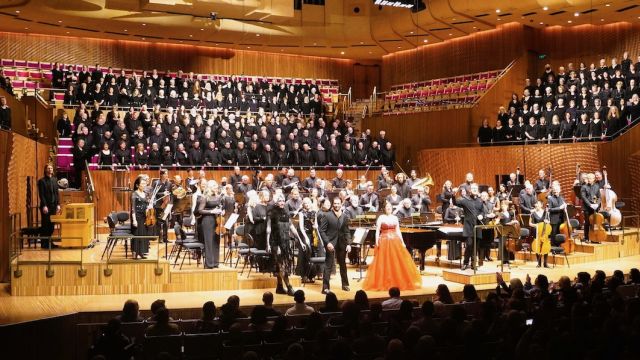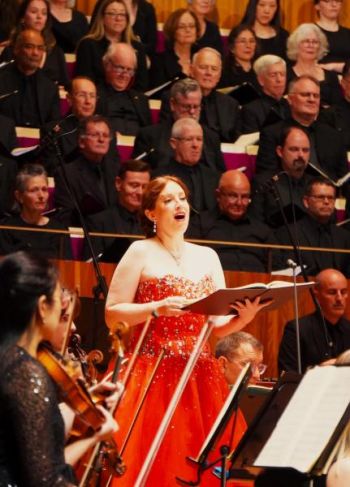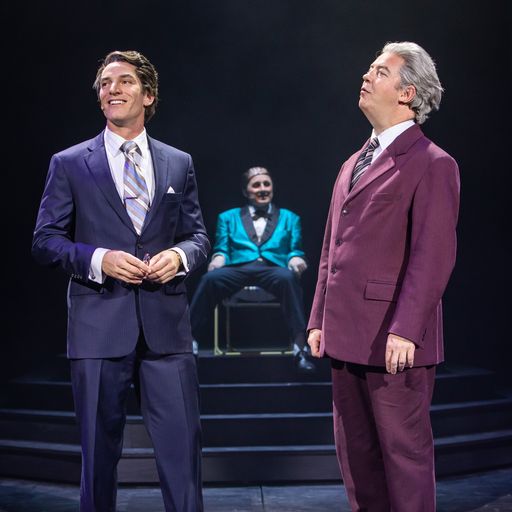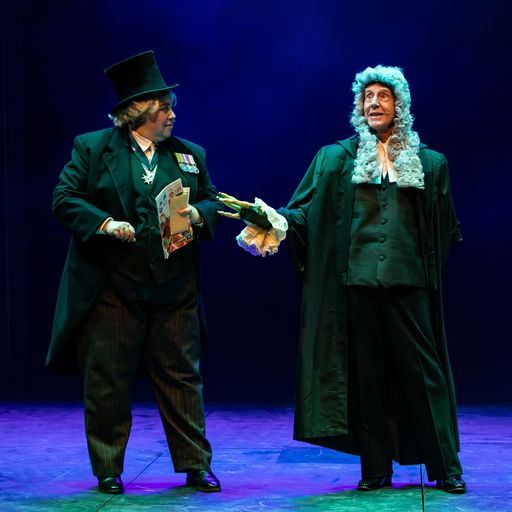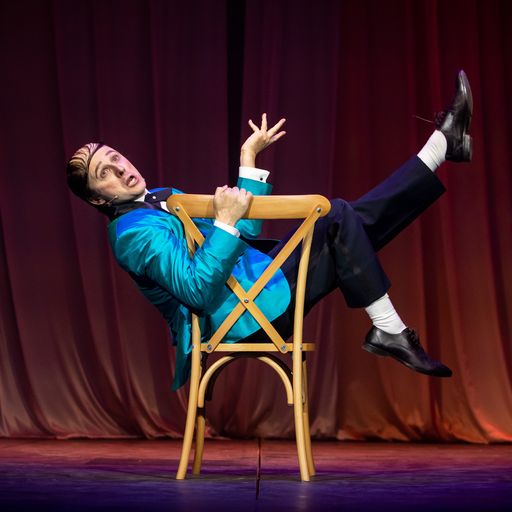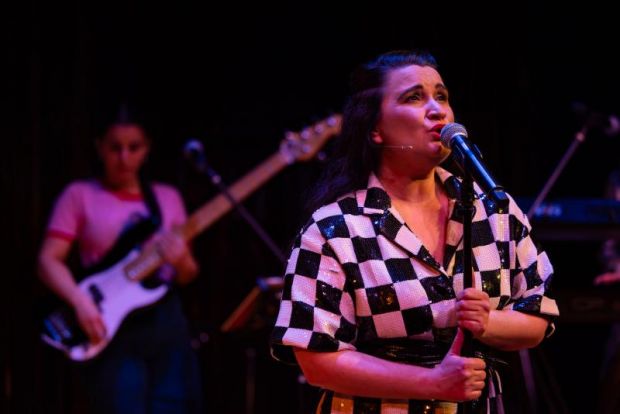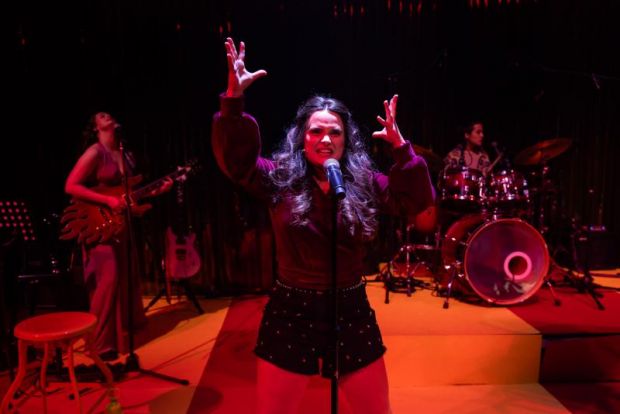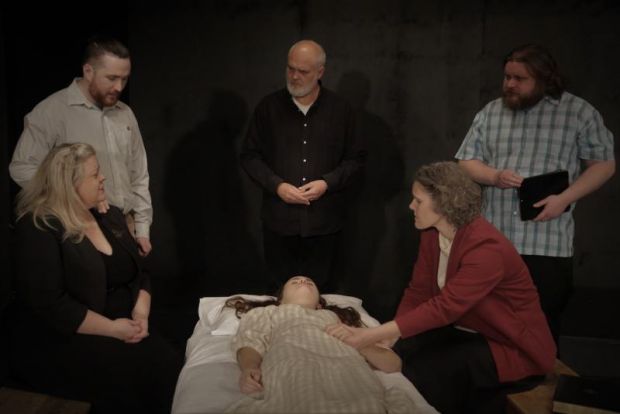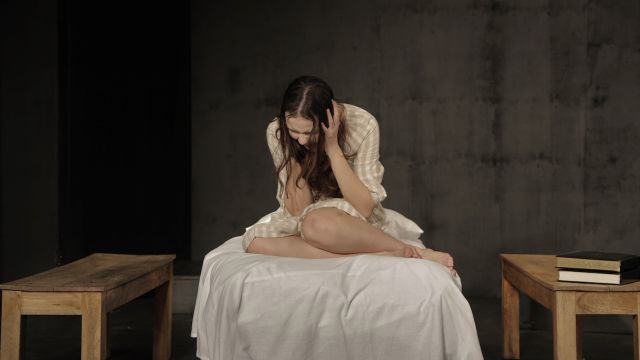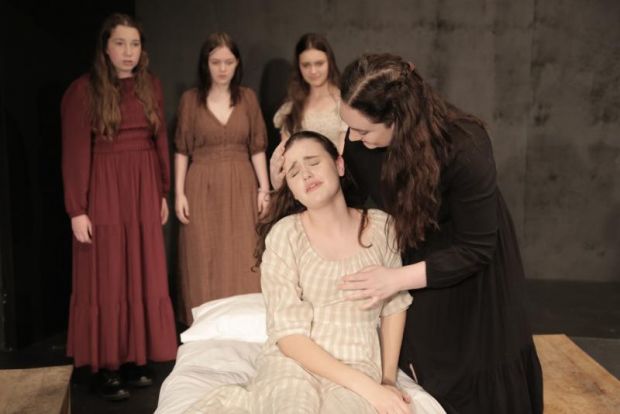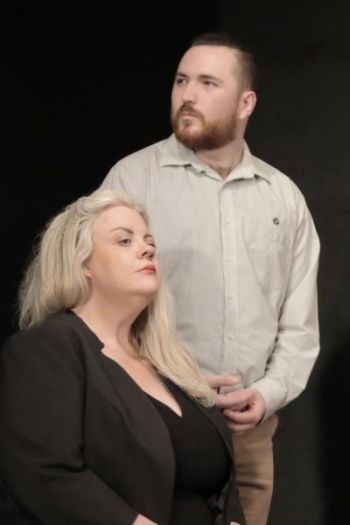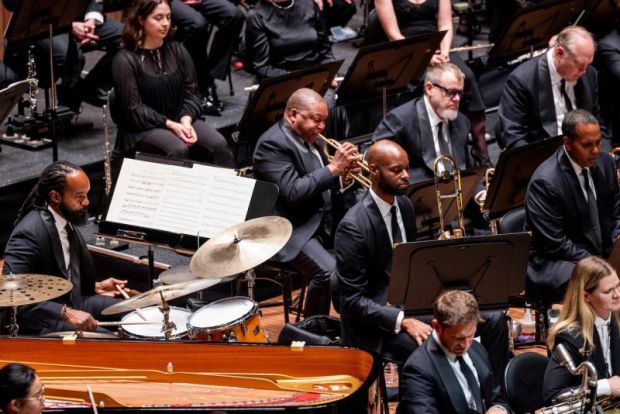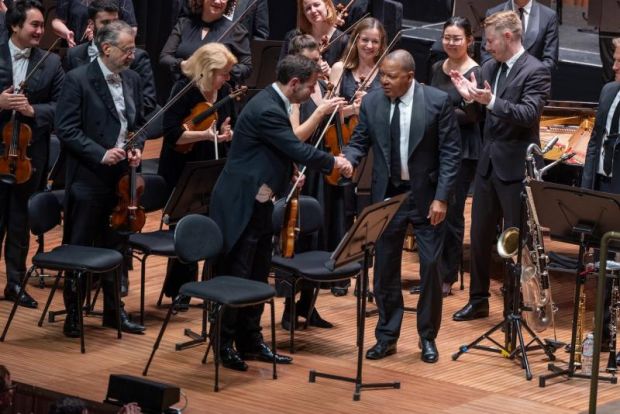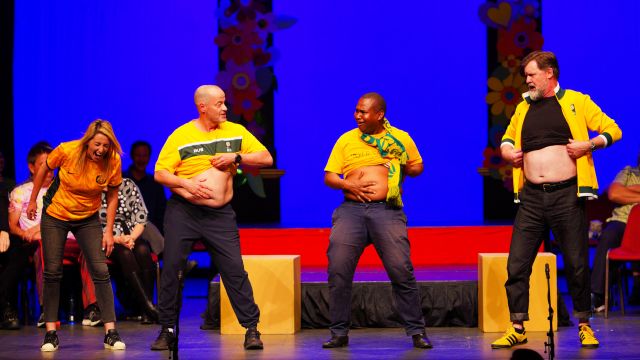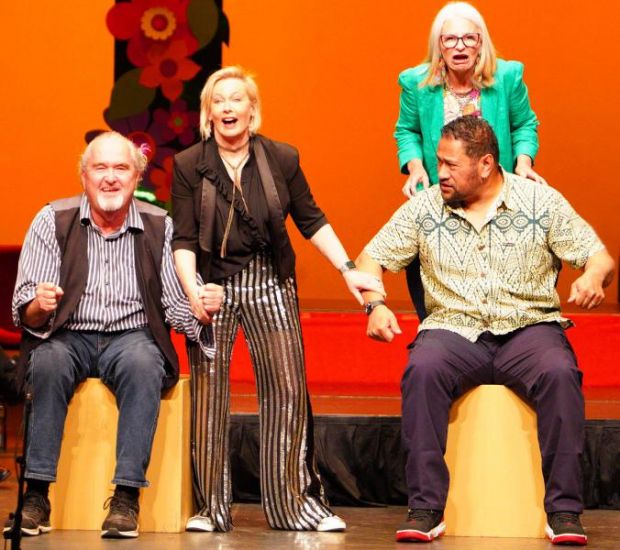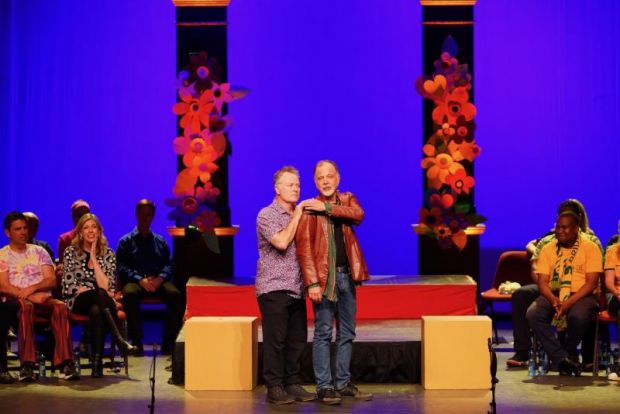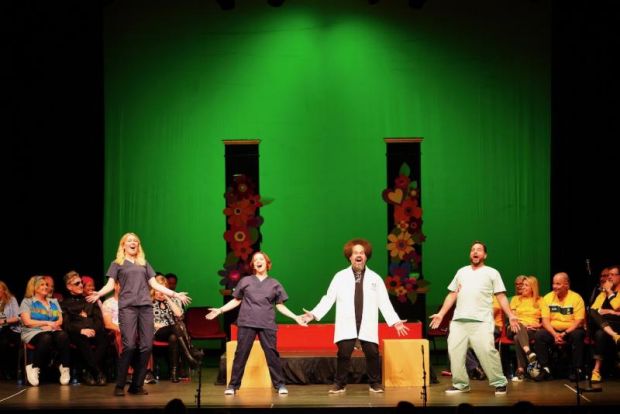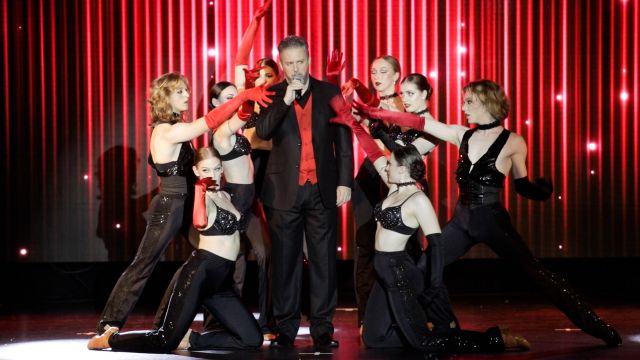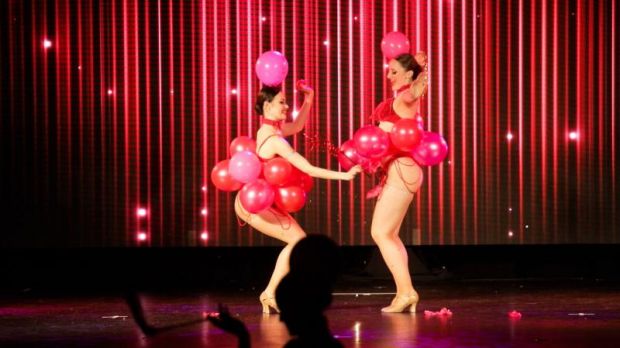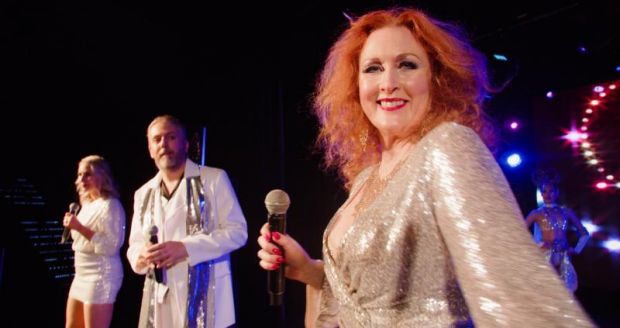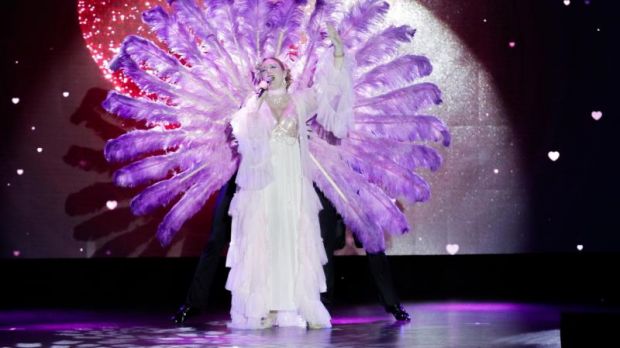A Trio of Plays for Two Actors; By Hilary Bell; Director Francesca Savige; Ensemble Theatre Kirribilli. 8 Sep – 14 Oct
Reviewed 12 September, 2023*
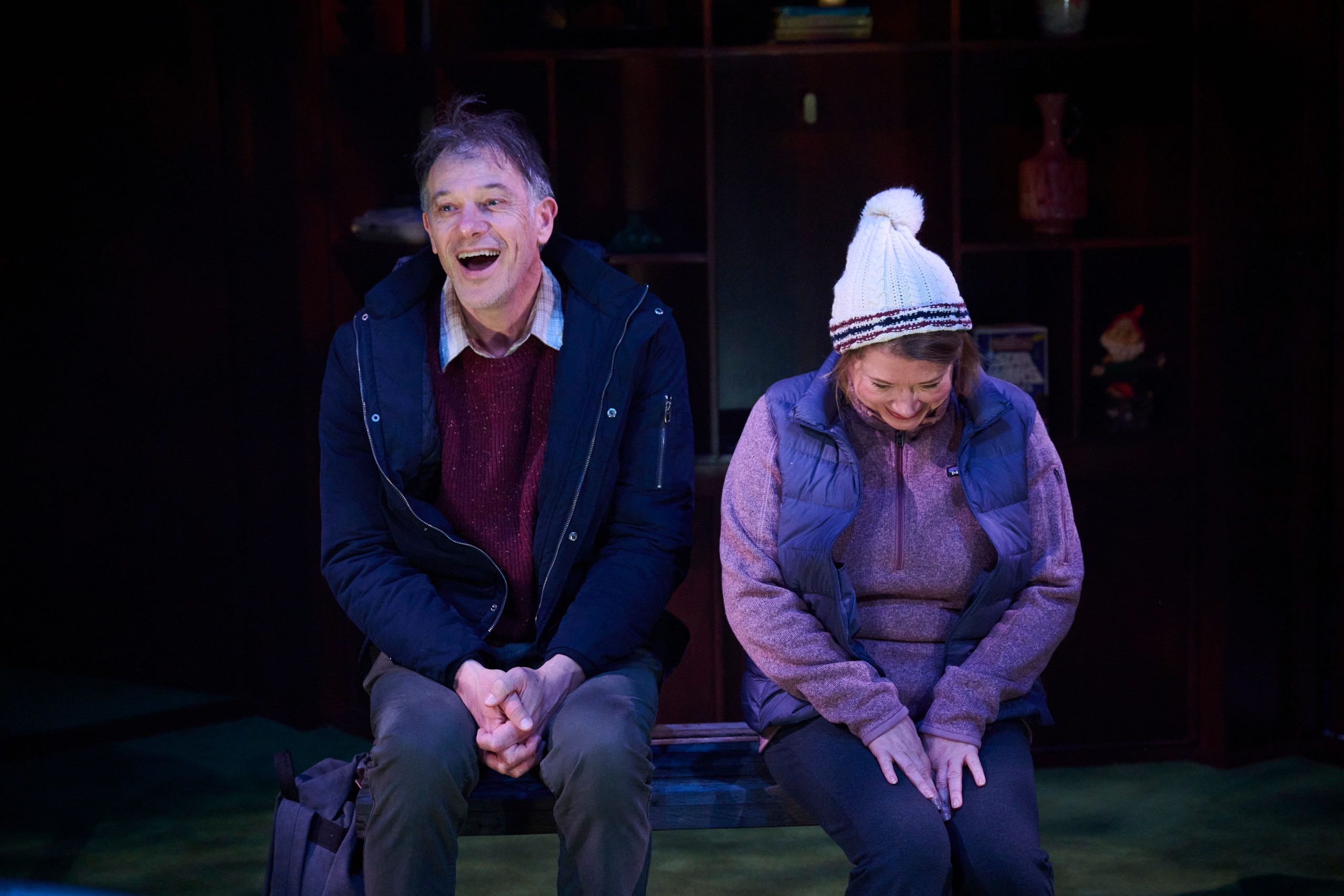
“Things pass through our hands.
On to someone else, or gone forever.”
… Or sometimes we keep them in high, elaborate shelves like those designed by Jeremy Allen in the elegant set that frames Hilary Bell’s trio of captivating stories about three people in their late fifties and an inanimate object that affected their lives.
Each of Allen’s graceful timber panels is divided into many different sized nooks and alcoves, each housing a plethora of different objects. A vase, a statue, an artifact, a rubber fish, a little radio, three sun flowers, a small painting … each obviously special for some reason, each housed in its own space. The whole suggesting a lifetime of memories …
It’s an incredibly detailed and ornate set – a perfect background for the first of the plays: Summer of Harold where Janet, played by Hannah Waterman, recalls the summer spent with a friend in England 39 years ago working as housekeepers for British playwright Harold Pinter and his wife Lady Antonia Fraser.
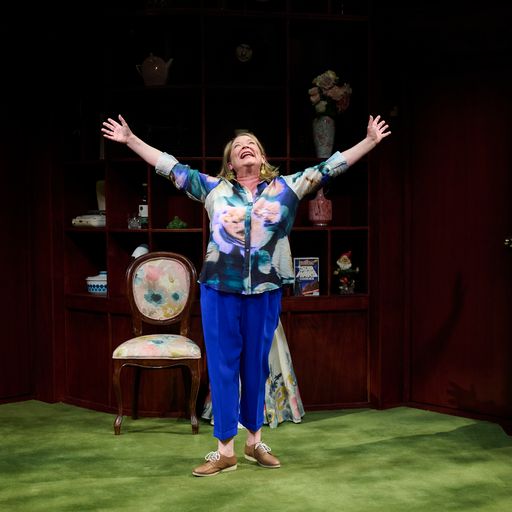
Based on a true story, Bell vividly imagines the girls’ adventures and misadventures as they cook and clean for “the most significant British playwright of the twentieth century”.
They are skilfully enacted by Waterman, who, under the perceptive direction of Francesca Savige, captures the “constant state of semi-hysteria” of Janet’s 20-year-old self as she relives the awe and busy-ness of their lives in the four-storey house in Holland Park. Emptying ashtrays, dusting awards, cooking Coronation Chicken, driving “to Sainsbury’s in a Merc with monogrammed doors,” ensuring Pinter gets his coffee in his special mug three times a day.
There’s energy in the way she talks, moves, laughs, pauses, an energy that follows the cleverly changing rhythms of Bell’s astute writing. That rhythm is particularly important when she relives preparing and serving the annual “luncheon” for the Gaieties, Pinter’s cricket team “made up of famous actors and playwright’s and even a few ‘sirs’”.
Here Bell uses short sentences, phrases, rhetorical questions, exclamations to set an accelerating pace, and Waterman picks up the tempo and the tension, especially the moment when Tom Stoppard suggests have a hit in the garden underneath a beautiful stained glass window …
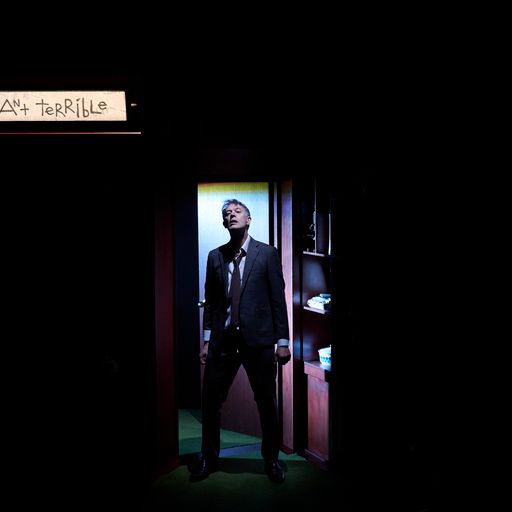
Janet holds those memories dear, so much so that her own lounge room is a replica of that in Holland Park … “same bookshelves, fresh flowers even when I’m broke.”
In Enfant Terrible, the second of Bell’s vignettes, Berynn Schwerdt pumps the energy even higher as he plays Gareth, a ceramicist obsessed with the success of a perceived less talented man whom he had befriended and supported through art school. And who was now acclaimed, riding high, with a residency in Paris no less – all of which they both attribute to “a precious talisman” he had picked up and held close for thirty-nine years.
Bell turns to a different style here, still realist but with absurdist touches, like the appearance of his sleep-disturbed wife (Waterman) who is summarily hunted back to bed. And Gareth’s language and pauses and changes of direction.
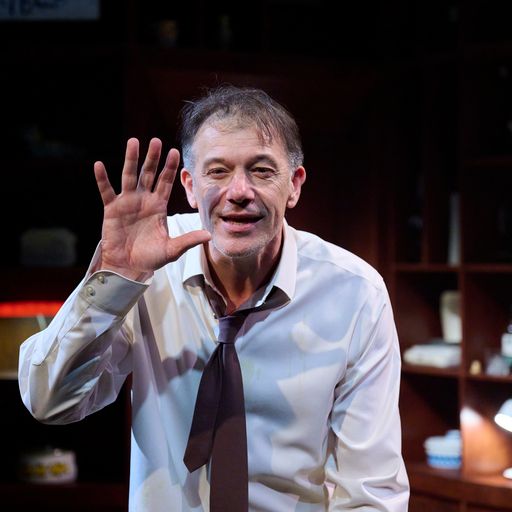
Savige makes the most of that – and the ire and resentment in Gareth’s lines, accentuating his restlessness and agitation, moving Schwerdt swiftly through a range of emotions – overwhelming joy, condescension, envy, greed, anger, particularly anger – as he recounts his saga. He is a tall man, lithe, with an expressive face all of which he uses to augment Gareth’s indignation and jealous rage – and his shocking act of revenge which will … “Oh God … be in the Herald tomorrow, all over the internet.”.
As the lights fade to almost black on yet another shock, a metal railing, hidden high above the shelving slowly lowers to form a barrier around the apron of the stage. Behind the barrier Waterman and Schwerdt come together in Lookout, the final of the three plays, set in the Blue Mountains.
It is late afternoon. Smokey mist swirls up from the valley far. Jonathan, carrying a backpack wanders disconsolately up to the lookout. He is quiet, hesitant – so jumps when Rae appears behind him. They haven’t seen each other for a while. But this is a place they used to come to together. They chat. Their sentences are short. Their reminiscences are spiked by Rae’s questions. Her curiosity about his backpack; a phone call; and his new lady friend. Jonathan’s responses are guarded, restrained.

This story Bell tells much more delicately. Unlike the previous stories, this rests on a relationship and Bell develops the characters slowly, quietly but with a discomfort that she takes time to explain. The long-standing source of the discomfort hides in the backpack, and the reason Jonathan has brought it to this place is profound …
Waterman and Schwerdt use a different energy in this gentle, carefully scripted scene that is intimate and delicate. Guided by Savige’s sensitivity, they allow the characters to emerge slowly, almost wistfully, almost unsure of what will happen if they do …
Lookout cements the theme that hovers behind Bell’s stories, the theme that she explains succinctly in her program notes:
“They speak to the ways in which a life can be shaped by an object, for good or for ill, and that recognising it for what it is can release us of its power.”
*Opening Night
